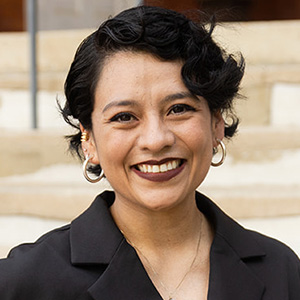NIH’s advisory committee releases report on re-envisioning postdoc training
The National Institutes of Health’s Advisory Committee to the Director met on Dec. 15 to discuss the working group's report on re-envisioning NIH-supported postdoctoral training.
The working group developed six primary recommendations for NIH:
- Increase pay and benefits for all NIH-supported postdoc scholars.
- Create and expand mechanisms to support postdoc scholars.
- Facilitate transition of postdoc scholars into the next career stage.
- Promote training and professional development of postdoc scholars.
- Support safe and diverse perspectives and research environments within institutions.
- Improve means to measure and share postdoc scholars’ career progression.
Tara Schwetz is a co-chair for the working group and NIH’s deputy director for program coordination, planning and strategic initiatives.
“With these recommendations, the working group aimed to set bold aspirations, convey a sense of urgency, recognize that systems problems require systems solutions, and offer a solution space,” Schwetz said.
Kevin Gardner is the inaugural director of the Structural Biology Initiative of the CUNY Advanced Science Research Center and a member of the American Society for Biochemistry and Molecular Biology’s Public Affairs Advisory Committee.
“I am glad to see NIH seriously evaluating the weaknesses — and strengths — of postdoctoral training at what feels like a distinct crossroads for this integral part of the biomedical research community,” he said.
Increase pay and benefits
The working group’s report was informed by responses to a request for information it issued in spring 2023. The responses indicated that compensation is the biggest barrier to taking part in postdoctoral research and that it prevents postdocs from achieving financial security and starting families.
The working group recommended an increase in salary that is adjusted to inflation, with a minimum of $70,000 for NIH-supported postdoc stipends in 2024, up from $56,484 in 2023.
Also, it recommended increasing the minimum stipend for each additional year of experience and encouraged institutions to pay NIH’s stipend levels as minimum compensation for all NIH-supported postdocs, regardless of funding mechanism or discipline.
In addition, the report emphasized that institutions should provide full-time employee level benefits or employ NIH-supported postdocs directly.
Finally, the group recommended a five-year limit for supporting a postdoc on NIH funding, regardless of the time spent at different host institutions.
Create and expand mechanisms
The working group also suggested creating new funding mechanisms to recruit and retain talented postdoctoral scholars from diverse and underserved populations, including international postdocs.
The NIH has training and career-development grants, the K12 awards, that are awarded to institutions to support appointees with a doctoral degree. The group recommended that the NIH develop K12 awards to support cohorts of postdocs who are currently underserved and K awards for postdoc applicants attending a university without an institutional award to create more equitable pathways to become an independent researcher.
The working group suggested revisions for the postdoc-to-independent-researcher transition grant, the K99/R00 award, to include an eligibility window limit to the first two years of the postdoc experience. Also, to create more rapid and stable paths to independence, the group recommended piloting a new transition award mechanism, called F99/K00/R00, that would support a grantee from their graduate studies to independent researcher.
U.S. domestic talent alone does not fulfill the needs of the STEM workforce. As of 2019, 56% of postdocs were foreign, yet foreign scholars are ineligible for many NIH grants. The working group emphasized it is important to expand eligibility to include international scholars for mechanisms for which it is legally and programmatically possible or develop targeted mechanisms to fund these scholars.
The working group also acknowledged the burden placed on international postdocs by their one-year contracts and recommended an extension to at least three years to minimize renewal paperwork, financial strain and job insecurity.
Facilitate transition into the next career stage
More doctoral recipients and postdoctoral scholars are pursuing a wider range of career paths in science. The working group recommended fostering the research professional track, e.g., staff scientist positions, to improve the sustainability of the biomedical enterprise.
This would include piloting funding mechanisms for this track to expand the academic job pool and retain talent in academic research. Also, the working group recommended establishing a minimum compensation for staff scientists that is higher than a postdoc salary.
The working group also encouraged the NIH to engage with sectors outside of academia to support doctorate-holders seeking employment beyond academia. The group recommended collaborating with the Foundation for NIH to increase novel collaborative funding paths with life science companies, nonprofits and professional organizations.
Promote training and professional development
A critical element in a postdoctoral scholar’s training is professional development courses/activities that are directed by the postdoc to ensure it aligns with their career goals. The working group recommended that NIH require institutions to ensure that a minimum of 10% of the postdoctoral scholar’s efforts are designated to career- and professional-development activities.
Another critical element in a postdoc’s training is mentorship. The group suggested the NIH hold institutions and investigators accountable on mentoring, either through its inclusion in the research performance progress report to document the mentor–mentee relationship or to require grant applicants to submit a mentorship training plan when requesting postdoc positions for any funding mechanism.
Support safe and diverse perspectives and research environments within institutions
Impediments to the success of postdoctoral scholars at the institutional level include abuse, harassment and mental health issues. NIH policies require institutions to have processes in place to prevent discriminatory harassment and to provide safe working conditions. The working group recommended that NIH continue building accountability mechanisms to ensure equitable treatment of postdoctoral scholars.
NIH has taken agency-wide efforts, e.g., UNITE, to support diverse perspectives and expand relevant funding opportunities. The working group acknowledged that an unfortunate but expected outcome from increasing the postdoc pay without increasing NIH funding will be fewer NIH-supported postdoc positions.
However, the group said that it believes its recommendations will enhance the quality and efficacy of postdoc training.
The group recommended the NIH continue internal efforts and require institutional support in monitoring unintended reductions in diverse perspectives in the postdoc community and create modules for immigration education to address the unique needs of international scholars.
Measure and share career progression
Data for and about postdoc is limited and difficult to access. Postdocs need access to this data to advocate for policies and resources. The working group recommended the NIH require institutions receiving NIH funding to report on postdocs and their career outcomes in the biomedical fields, regardless of funding source, to improve data collection.
The report also acknowledged the need to strengthen existing partnerships with the National Science Foundation and other organizations to enhance the data collection process for the postdoc community.
The working group emphasized the importance of fostering direct communication and engagement between NIH, postdocs and institutions.
“We acknowledge that the changes we recommended will require significant resources and a commitment from NIH and the whole biomedical community to improve the health of the ecosystem,” Schwetz said.
How we got here
The working group was formally announced on Dec. 8, 2022, and charged with re-envisioning the postdoctoral experience to be more sustainable and inclusive and to recognize and reward the value of postdoctoral scholars to the U.S. scientific enterprise.
NIH sought feedback and held listening sessions for the scientific community. The ASBMB submitted its feedback in April.
NIH released a report on the listening sessions and responses submitted.
NIH announced the final report Dec. 15 during the Advisory Committee Meeting.
“I think the working group provided some creative ideas that I hope will catalyze change within all of those involved, including several components of NIH, research institutions, principal investigators and postdocs themselves,” Gardner said.
Watch the NIH ACD Meeting and presentation slides to learn more.
Related links
The National Institutes of Health’s working group on re-envisioning NIH-supported postdoctoral training developed six recommendations for the NIH.
Learn more from these source materials:
-
NIH’s request for information
-
ASBMB’s recommendations
-
NIH’s working group webpage
Enjoy reading ASBMB Today?
Become a member to receive the print edition four times a year and the digital edition monthly.
Learn moreFeatured jobs
from the ASBMB career center
Get the latest from ASBMB Today
Enter your email address, and we’ll send you a weekly email with recent articles, interviews and more.
Latest in Policy
Policy highlights or most popular articles

Councilors advocate for science on Capitol Hill
ASBMB Councilors meet with their elected officials to advocate for basic scientific research funding and training the next generation of scientists.

Hope for a cure hangs on research
Amid drastic proposed cuts to biomedical research, rare disease families like Hailey Adkisson’s fight for survival and hope. Without funding, science can’t “catch up” to help the patients who need it most.

Supporting science through advocacy and community building
ASBMB calls on scientists to take action as funding cuts and policy shifts threaten the U.S. research enterprise, emphasizing the power of community advocacy and persistence in protecting the future of science.

Seven steps to advocating in your home state
Find out how to schedule, prepare for and conduct a productive district office meeting to communicate the importance of fundamental scientific research funding to your representatives.

ASBMB members call for funding and agency support amidst uncertainty
In 60 meetings on Capitol Hill, scientists urge legislators to reaffirm support for scientific innovation

Embrace your neurodivergence and flourish in college
This guide offers practical advice on setting yourself up for success — learn how to leverage campus resources, work with professors and embrace your strengths.

